Discover the Future of Education in Dubai: Top Schools and Trends
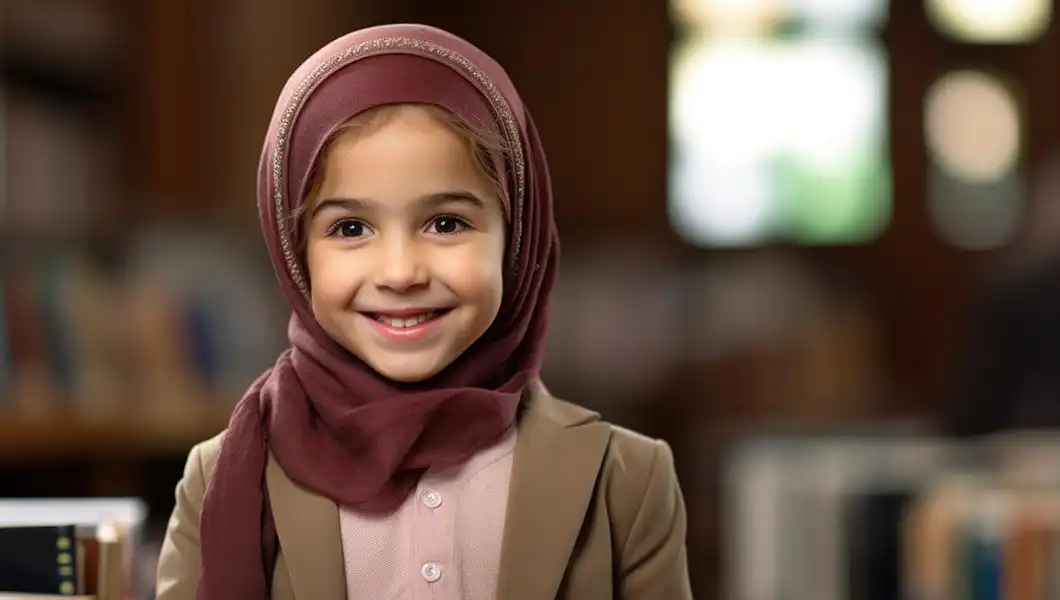
Are you looking to understand education in Dubai? This city boasts a diverse education system blending public, private, and international schools, all regulated by the Knowledge and Human Development Authority (KHDA). Whether you’re a resident or an expat, Dubai offers top schools and innovative trends in education. In this article, we delve into the types of schools available, key regulations, and what makes education in Dubai stand out.
Key Takeaways
- Dubai’s education system features a mix of public, private, and international schools, catering primarily to its expatriate population.
- The city emphasizes inclusive education, with a significant portion of schools equipped to support students with special needs.
- Living near top schools in areas like Dubai Hills and Arabian Ranches enhances family logistics and provides a high quality of life.
Overview of the Education System in Dubai
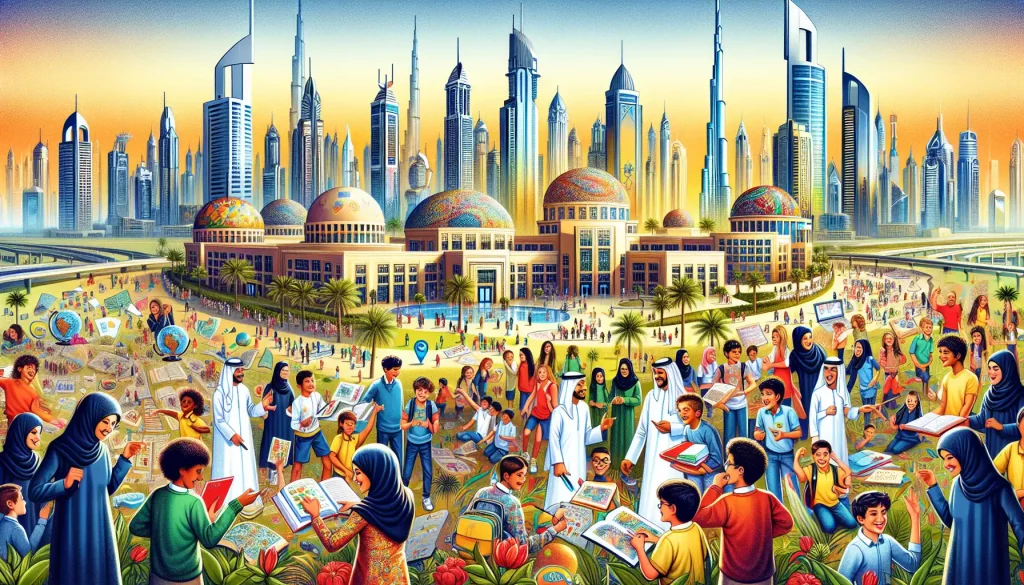
The education sector in Dubai is comprised of an eclectic mix of private, public, and international schools that serve its culturally rich and varied population. The Knowledge and Human Development Authority (KHDA) plays a crucial role in maintaining the standards of private education by overseeing their operations, thereby ensuring high-quality educational provisions to fulfill the needs of those living in Dubai. Its school landscape mirrors the city’s multicultural essence with expatriates making up 89% of its populace, leading to a considerable number of students hailing from diverse backgrounds.
Emirati children must participate in school starting at age six until they have completed secondary schooling, laying down a strong base for their upcoming years. In line with this educational pathway, students are required to undergo a minimum twelve-year formal education period before earning their graduation credentials. These comprehensive regulations underscore Dubai’s pledge towards providing consistently superior quality education accessible for all members of its community.
Public Schools in Dubai
Public schools in Dubai provide complimentary education for Emirati children at both primary and secondary levels. These institutions feature a bilingual curriculum in Arabic and English, facilitating early language proficiency for students. For expatriate families, these schools are an economical choice with annual fees between 2,000 to 6,000 AED—a cost significantly less than private school options.
These reasonably priced public schools adhere to rigorous educational standards overseen by the KHDA. This governance assures that every student—whether from the UAE or abroad—is offered an education of world-class quality that is designed to cater specifically to their educational requirements.
Private Schools in Dubai
In Dubai, private schools offer an extensive selection of educational systems such as the British, American, Indian curricula and International Baccalaureate. These institutions cater especially to expat families who desire an education for their children that aligns with what they are accustomed to. Notably, over half of the students attending these private schools are enrolled in either British or Indian curriculum-based programs.
The high standards and adaptability provided by these private schools in Dubai result in a well-rounded and internationally acknowledged education for pupils. Consequently, this prepares them for future academic and career endeavors effectively.
International Schools in Dubai
In Dubai, there is a significant demand for international schools, which stems from the extensive expatriate community. These institutions serve families hailing from various countries by providing globally recognized curricula like the International Baccalaureate. To ensure admission into these sought-after schools, it’s recommended that families initiate the application process well in advance.
These international schools offer an education of exceptional quality that embraces cultural diversity and academic stringency. This prepares students for pursuits in higher education and future careers on a global scale, showcasing Dubai’s dedication to delivering world-class educational opportunities to those living within its borders.
Primary and Secondary Education in Dubai
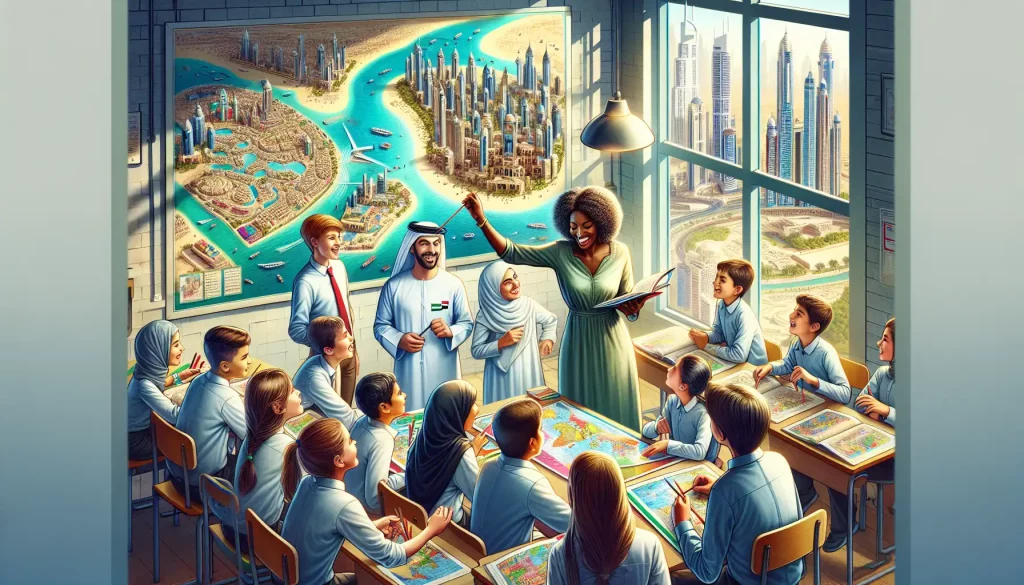
In Dubai, all children must be enrolled in primary and secondary education programs, thus assuring that each child has access to a thorough educational foundation. Over 90% of students are educated within private schools, highlighting the dominant role these institutions play in offering diverse and superior quality learning experiences.
For example, GEMS schools have established a reputation for their rigorous adherence to KHDA standards with several of them achieving an ‘Outstanding’ rating. The substantial enrollment figures at private schools mirror Dubai’s varied population demographics where international schools mainly cater to the needs of expatriate families seeking education for their children.
Primary Schools
In Dubai, primary schools serve children between the ages of six and eleven, concentrating on fundamental subjects like mathematics, science, and social sciences across five academic levels. While public primary schools divide their academic year into three trimesters, private school counterparts typically adhere to a semester-based framework. Public educational institutions offer education with Arabic as the main language of instruction complemented by English teaching. This dual-language approach equips pupils with fluency in both languages.
Conversely, private schools present a diverse array of educational programs—194 such schools are delivering 17 distinct international curricula. The Millennium School is among these establishments and stands out for its comprehensive curriculum that not only covers academics but also includes an extensive range of extracurricular activities designed to foster overall student growth. This institution represents an exemplary choice for those contemplating enrollment in a private school setting within Dubai.
Secondary Schools
In Dubai, students are required to complete their secondary education up until they graduate. Public secondary schools usually start from the 9th grade onwards. Private schools might follow a distinct arrangement. Those attending technical secondary institutions have the opportunity to focus on specialized fields like computer technology, health sciences, and finance—equipping them with hands-on skills that will serve them in future endeavors.
There are multiple routes within secondary education to suit different student goals and interests, encompassing both vocational training programs and more academically oriented pathways. Such variety ensures that graduates of these educational systems enter higher education or professional life with robust preparation.
Top International Schools in Dubai
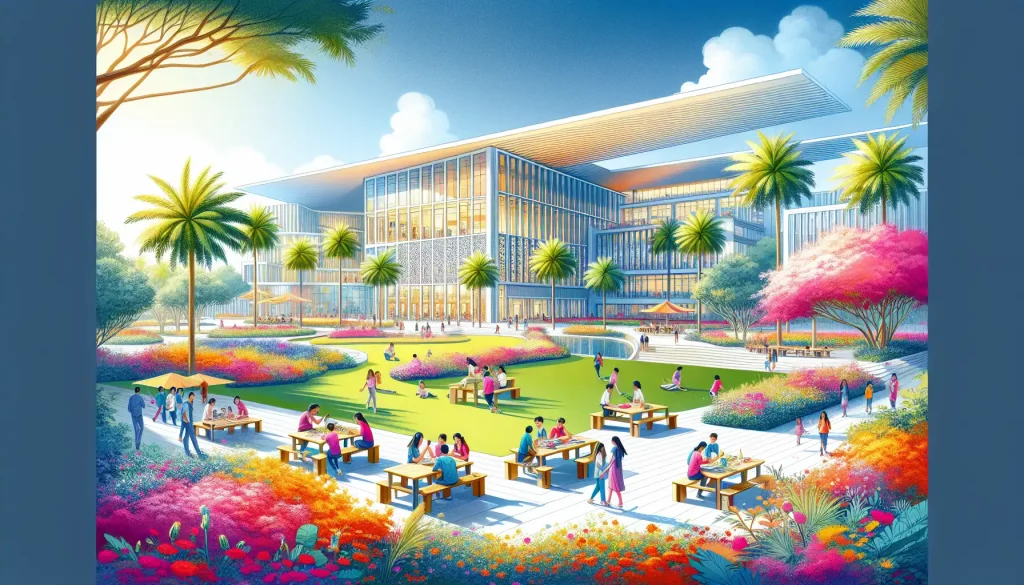
In Dubai, a plethora of prestigious international schools exist, with the Knowledge and Human Development Authority (KHDA) overseeing their adherence to elevated educational standards. These institutions are celebrated for both their academic success and modern amenities, positioning them as attractive options for families from overseas. Schools exemplified by Dubai College have attained commendable ratings in performance evaluations, indicative of the high caliber education prevalent across the city.
Opting for a distinguished school among those affiliated with GEMS Education can afford students an encompassing educational experience that equips them robustly for future endeavors. Numerous international schools in Dubai offer assistance with student visas, which simplifies the process for expatriate households looking to settle in this dynamic region.
GEMS Education Schools
GEMS Education is celebrated for its dedication to delivering an education of world-class caliber that concentrates on the comprehensive growth of students. The approach at these schools extends beyond merely academic advancement. It also includes fostering social, emotional, and bodily development. By providing a supportive and welcoming educational atmosphere, GEMS schools are able to offer tailored attention and assistance tailored specifically for every student.
Equipped with cutting-edge amenities such as contemporary classrooms, extensive libraries, advanced science laboratories, and athletic facilities, GEMS schools guarantee that their pupils have the finest tools available for their learning journey. Beyond the classroom setting, students’ personal growth is encouraged through participation in various extracurricular activities.
The Millennium School
At The Millennium School, a multifaceted curriculum is available that blends different pedagogical strategies and subjects. This integration supports the all-around advancement of its students. Incorporating current technologies and creative methods enhances learning effectiveness. Students have opportunities to engage in various additional activities such as athletics, arts, and community involvement.
To meet the distinct requirements of varied learners, the school offers substantial support services like counseling and educational help. Parents are provided with access to seminars and materials intended to aid them in contributing to their children’s scholarly achievements and overall personal development.
The Westminster School
Westminster School is renowned for its academic prowess and commitment to community engagement. Similarly, Winchester School provides a robust curriculum designed to equip students with the skills needed for success in higher education and their future careers. Emphasizing personal development and collaboration, these aspects are fundamental to the school’s values.
Prioritizing comprehensive growth, Westminster School fosters an environment where students excel academically while also being encouraged to become socially aware and actively involved in their communities. This emphasis on all-around excellence positions it as a prime destination for parents who value high-quality education for their children.
Special Needs Education in Dubai
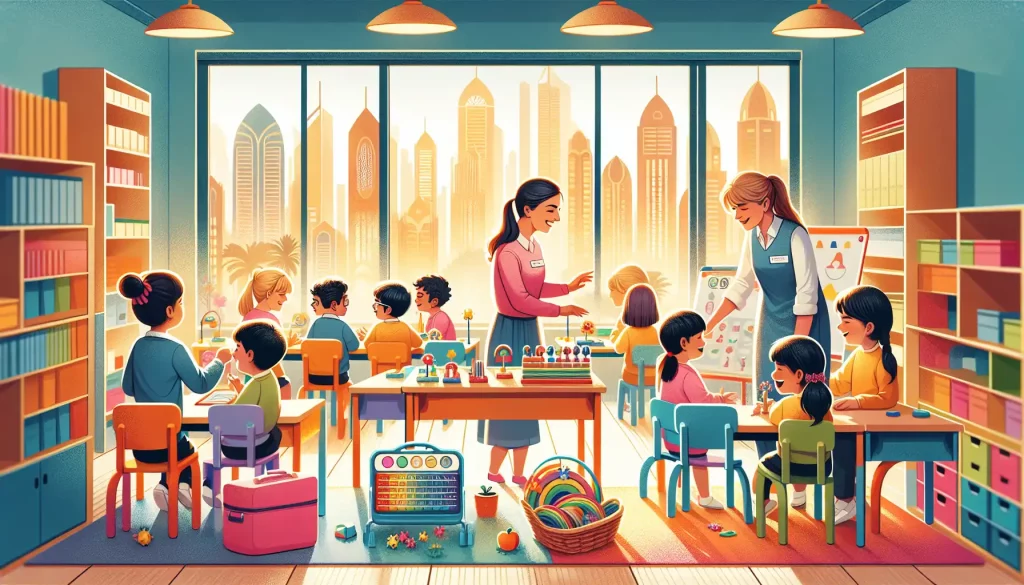
Dubai places a high priority on offering equitable education for all students, including those with special needs. The UAE government has enacted legislation to guarantee that these students have access to high-quality services in diverse educational environments. Support for students with special needs is mandated by the Dubai Inclusive Education Policy Framework, which calls upon education providers to facilitate their inclusion.
A considerable rise in the population of disabled children attending schools reflects Dubai’s dedication to inclusive learning practices. Nearly 42% of schools in Dubai cater specifically to special needs children, providing infrastructure such as ramps and tailor-made classrooms designed to enhance their educational experience.
Government Partners and Support
To bolster support for the education of students with special needs, the government of the UAE is in collaboration with several entities. The Ministry of Education has established support centers focused on overseeing and aiding students who require additional assistance, making certain that they have access to essential resources and attention.
The collaborative efforts between these organizations are key elements in fostering an educational atmosphere that is inclusive, addressing the varying requirements of every student comprehensively.
Inclusive Schools
As of 2020, the KHDA has stipulated that all private schools in Dubai must be prepared to assist children with special needs. Institutions such as Cambridge International School have implemented adaptable strategies to serve students with various requirements. These schools use Individual Education Plans (IEPs) to customize learning approaches for each student with special needs, providing them with a tailored educational experience.
Inclusive education systems simplify enrollment processes by not demanding an official medical diagnosis for admission, which benefits parents looking to place their children in these programs. Schools including the University of Georgia. The Westminster School actively engages their students in activities designed to cultivate personal development and cooperative skills within a nurturing and collaborative atmosphere.
Higher Education Opportunities in Dubai
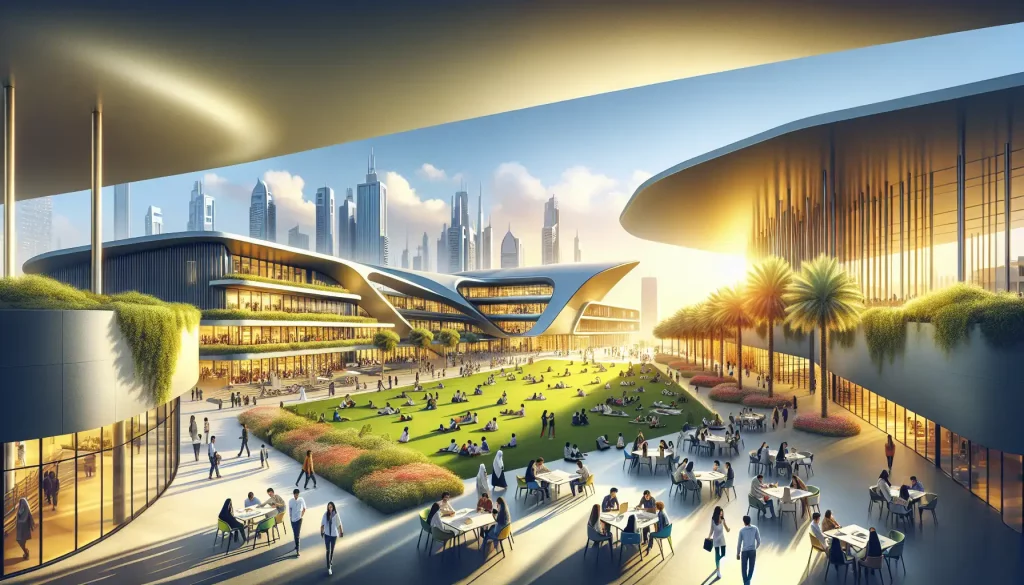
With a selection of universities under the regulation of KHDA, Dubai positions itself as a prominent center for higher education within the region. It hosts multiple foreign accredited institutions, offering students and professionals an array of advanced training courses pivotal to their professional development.
The academic landscape in these educational establishments is richly diverse, encouraging innovation and excellence across different disciplines. This focus on continual growth enhances both student education and career opportunities in various areas of expertise.
Universities in Dubai
The majority of internationally accredited universities are situated within Dubai International Academic City (DIAC), cementing its reputation as a central point for educational pursuits. Esteemed schools, including the Harvard Medical School Dubai Center, provide targeted education and training opportunities that draw in a global student body.
Dubai’s attractiveness as a prime location for higher education is amplified by the existence of these distinguished institutions, offering students ample chances to advance academically and professionally.
Professional Development Courses
In Dubai, a diverse array of courses aimed at professional growth is available, particularly those focusing on training in the fields of hospitality and culinary arts. This assortment of educational opportunities aligns with the evolving requirements of an active employment sector by allowing individuals to consistently enhance their abilities and knowledge.
Such educational offerings highlight Dubai’s dedication to promoting an environment where continuous learning and advancement are highly valued.
School Fees and Scholarships
The financial requirements for a student’s education in Dubai can differ greatly depending on the educational institution. Emirati nationals have the benefit of attending public schools without paying tuition fees. Expatriates are subject to varying fee structures based on which school they choose. Private and international schools in Dubai present an extensive spectrum of fees. Some may even exceed AED 100,000 annually.
To support students who demonstrate academic distinction and encourage highly accomplished individuals to attend their institutions, numerous scholarships are offered. These sources of financial aid necessitate not only exceptional scholastic achievement but also adherence to a stringent application procedure designed to identify candidates worthy of such awards.
School Fees
In Dubai, the cost of schooling can vary significantly with fees ranging from AED 12,723 to AED 64,093 yearly depending on the school and its offered curriculum. Parents should also consider additional expenses for books, uniforms, and after-school activities, which may require an extra budget allocation of approximately 10,000 to 15,000 AED each year.
Regulatory oversight of these educational costs is provided by the Knowledge and Human Development Authority (KHDA), which controls increases in tuition fees through adherence to the Education Cost Index. This regulation helps maintain fee increments within acceptable limits. For parents plotting out their children’s academic futures in Dubai, comprehending these financial demands is essential. It not only aids in sound financial planning but also guarantees that students can fully engage with the educational prospects at hand.
Scholarships
Dubai’s prestigious international schools deliver a high-caliber educational experience and offer an array of scholarships to support students economically. These financial aids are designed to both recognize meritorious achievements and provide for those in need, thereby opening up access to superior education for a diverse student body. As part of the scholarship application procedure, candidates are typically expected to present detailed accounts of their personal ambitions, scholastic records, and endorsement letters that showcase their accomplishments and aptitude.
These scholarships serve as a vital resource enabling students to advance their academic pursuits without monetary stress. They also contribute towards nurturing an environment committed to scholarly distinction and inclusiveness within the educational landscape of Dubai.
Living Near Top Schools in Dubai
Opting to reside in the vicinity of premier schools within Dubai presents multiple advantages, such as reduced travel times and improved coordination for family activities. Being close to esteemed educational institutions can substantially elevate a family’s quality of life by providing both ease and deeper social connections. Neighborhoods situated near top-tier schools typically boast superior community features that attract families.
Inhabiting areas adjacent to leading schools guarantee children receive access to high-quality education while simultaneously enriching residential life with better communal amenities and fostering an environment conducive to family support.
Dubai Hills
Dubai Hills, esteemed for its opulent residences and proximity to distinguished schools, offers families with children a high-caliber lifestyle complemented by the convenience of landscaped gardens and recreational amenities. This residential hub stands out as an exemplary location that prioritizes family needs by simplifying travel to quality educational institutions, thus promoting seamless access to top-tier education for children.
Inhabitants of Dubai benefit from the superior quality of life accorded by their residency in Dubai Hills. Dubai Hills school is synonymous with high-quality education as it provides excellent educational facilities nearby. Coupled with comprehensive community features conducive to a balanced way of living, residents here are indeed poised within an environment where excellence in schooling meets premium domestic bliss.
Arabian Ranches
The family-centric atmosphere of Arabian Ranches is acclaimed, not least because it provides proximity to various schools. Families often select this community for its generously sized villas and outstanding facilities that underscore a commitment to high-caliber education for their offspring. The presence of parks and recreational zones within Arabian Ranches enhances its appeal as an environment conducive to children’s well-being.
Esteemed for fostering a nurturing community ambience, Arabian Ranches ensures families are surrounded by excellent educational options. This focus on accessibility to premier schools contributes significantly to the promise of an elevated quality of life for residents’ children.
Motor City
In the heart of Motor City, GEMS Metropole School stands as a beacon for education that adheres to the British Curriculum. It upholds an exhaustive educational approach grounded in the National Curriculum for England and particularly focuses on learning through play within its early years program, which is aimed at younger students. The school’s welcoming and secure atmosphere is cherished by parents who value both their children’s safety and their academic growth. This environment is supported by contemporary facilities crafted to enrich students’ learning journeys.
Schools within Motor City are not only dedicated to academics but also provide an assortment of sports amenities alongside features promoting accessibility, ensuring every student has the opportunity to engage in various extracurricular activities regardless of any potential physical limitations they may have.
Summary
Dubai’s education system is a testament to the city’s commitment to providing world-class education to its diverse population. From public and private schools to international institutions, Dubai offers a wide range of educational options that cater to the needs of all students. The emphasis on inclusive education, higher education opportunities, and professional development ensures that students are well-prepared for the future.
Living near best schools in Dubai enhances family convenience and provides access to excellent community amenities. As Dubai continues to evolve, its education system remains at the forefront, offering high-quality education that prepares students for global success.
Frequently Asked Questions
What types of schools are available in Dubai?
Dubai provides a range of schooling options, including public, private, and international schools, to meet the needs of its diverse and multicultural community.
This variety ensures families find suitable educational environments for their children.
Are public schools in Dubai free for expatriates?
Public schools in Dubai are not free for expatriates; they are required to pay fees, whereas education is free for Emirati citizens.
What curricula are available in Dubai’s private schools?
Private schools in Dubai offer a range of curricula including British, American, Indian, and International Baccalaureate to meet the varied educational preferences and requirements of families within the area.
How can students with special needs be supported in Dubai’s schools?
Students with special needs in Dubai’s schools can be supported through inclusive education practices and personalized support, as mandated by local laws and policies to ensure equal educational opportunities.
This framework fosters an environment conducive to the diverse needs of all students.
What are the benefits of living near top schools in Dubai?
Living near top schools in Dubai offers reduced commute times and improved family logistics, along with access to high-end real estate properties and community amenities.
These factors contribute significantly to a more convenient and enriching lifestyle for families.